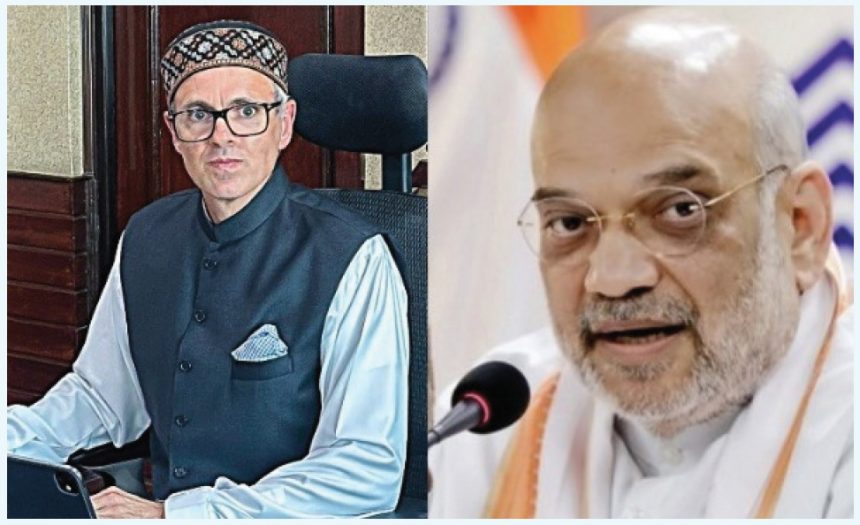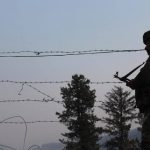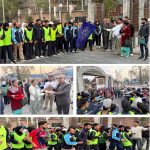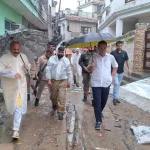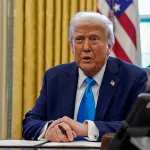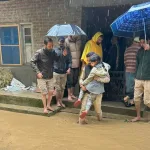Srinagar, Apr 05: A non-migrant Kashmiri Pandit organisation—Kashmiri Pandit Sangharsh Samiti (KPSS)—has submitted a detailed blueprint to J&K Chief Minister Omar Abdullah and Union Home Minister Amit Shah for the dignified resolution of issues related to Pandit community.
The Pandit body claimed that “enough is enough and that it was a high time for turning words into action”.
The document, available with the Rising Kashmir, talks about return of displaced Kashmiri Pandits and also rehabilitation of Pandits who stayed put in Kashmir when the majority of their members deserted Valley in 1990.
“After decades of exile, the Kashmiri Pandit community continues to wait for a roadmap home. GoI and J&K governments must move beyond token gestures and work for the dignified return and rehabilitation of the displaced community,” said KPSS president Sanjay Tickoo. “We have submitted a detailed blueprint to J&K CM and also to Union Home Minister Amit Shah.”
The document demands setting up of a dedicated authority or commission with constitutional backing like a Minority Commission. “We strongly urge the creation of a statutory Authority or a Constitutional Commission, such as a Minority Commission, empowered exclusively to address all aspects of the return and rehabilitation of the Kashmiri Pandit community,” the document reads. “This Commission must include genuine representatives from within the affected community, particularly those who have borne the brunt of displacement and maintained an enduring connection with the Valley, even during its darkest and most turbulent decades.”
It states that an empowered and autonomous Commission is the need of the hour—vested with statutory authority to monitor, intervene, and report on matters related to minority welfare, discrimination and community grievances. “Its mandate must go far beyond advisory functions; it should be executive in nature, capable of cutting through red tape, overcoming bureaucratic inertia, and ensuring effective, time-bound implementation of policies,” the document reads.
It states that this Commission should be composed of legal experts, historians, urban planners, social scientists, and respected community elders, alongside relevant officials from both the Central Government and the Union Territory administration.
The document also talks about protection of ancient sites stating that the Kashmiri Pandit civilization, with its ancient syncretic wisdom, flourished around temples, shrines, and sacred groves that dotted the Valley—symbols of deep philosophical insight, devotion and continuity. “Today, many of these sites lie in ruins or have been encroached upon, desecrated, or forgotten,” the document reads. “We request that a heritage protection mission be undertaken immediately under the aegis of the proposed Commission or an allied agency.”
It reads that a comprehensive survey, documentation, and restoration plan should be launched for all temples, shrines, cremation grounds, meditation caves and sacred springs associated with the community.
Advocating dialogue with the real stakeholders, especially youth, the Pandit body has urged the government to bypass self-appointed spokespersons who, over the decades, have neither represented nor reflected the will of the suffering masses. “Rehabilitation policy must not be framed in echo chambers, but in dialogue with grassroots organizations, displaced families, youth leaders, and cultural custodians who have preserved our identity in silence and suffering,” the document said. “Community engagement must be inclusive, participatory, and democratic. Let the unheard voices—the widows, the camp dwellers, the old custodians of culture, and the youth who know only exile—be brought into the center of decision-making. True policy cannot emerge from privilege; it must arise from pain, memory, and lived truth.”
Stating that the road to return is fraught with risks—legal, social, and security- related, “We appeal for the enactment of robust legal safeguards to protect the returning families’ land rights, properties, lives, and cultural identity. These must include swift dispute resolution mechanisms, anti-encroachment laws, and guaranteed law-and-order protection.”


